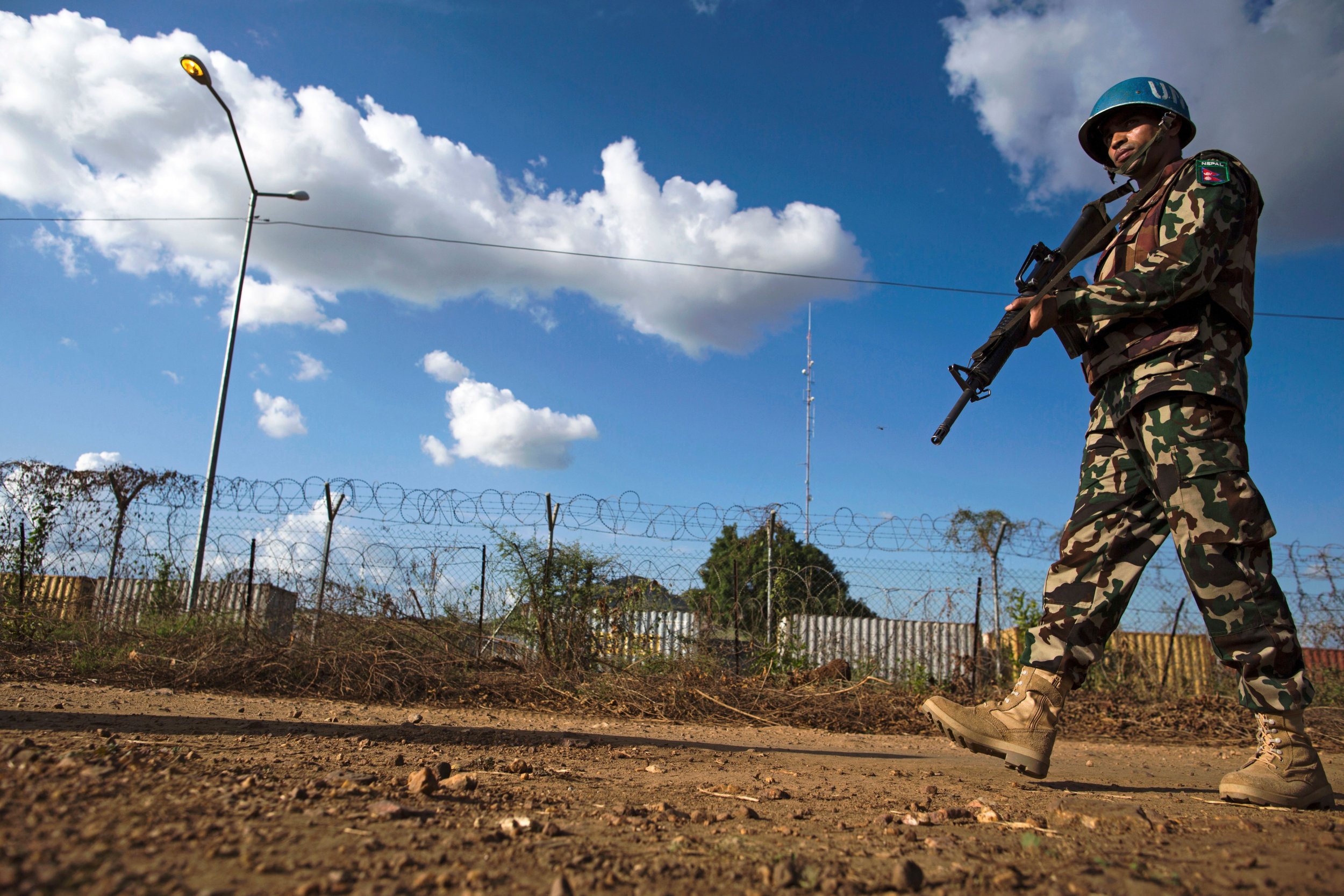
South Sudan's peace agreement is still "alive," according to Festus Mogae, the chairman of the body tasked with implementing the August 2015 accord.
While this is partially true, it is not an accurate characterization of the situation in South Sudan just over a year after it was signed.
Five years after South Sudan gained its independence in July 2011, the humanitarian and security situation is dire and deteriorating. The number of South Sudanese refugees has passed 1 million, including more than 150,000 since fighting began again in July.
The peace agreement has failed to accomplish its stated objectives. For the past year, regional and international powers have watched with helplessness as both sides have repeatedly violated its terms. The accord was expected to end a three-year civil war, form a transitional government of national unity, engender political, economic and security reforms, and establish a hybrid court to try war crimes suspects in South Sudan, among others. None of these provisions have been implemented.
Shortly after the formation of the long-delayed transitional government in April, heavy fighting erupted in the capital Juba between forces loyal to President Salva Kiir and those supporting First Vice-President Riek Machar. The latter was forced to flee with his forces, first to the Democratic Republic of Congo, then to Sudan. Meanwhile, Kiir replaced Machar with Taban Deng Gai as the first vice-president in a controversial decision criticized by Machar as a violation of both the agreement and the internal rules of his movement.
Nevertheless, the regional Intergovernmental Authority on Development (IGAD), the United States and other guarantors of the peace agreement appeared to accept, at least in the short term, the new political arrangement in Juba. But this regional and international acceptance has undoubtedly emboldened the government and pushed other opposition groups to resort to armed resistance instead of political dialogue.
Regional and international actors, such as IGAD, the U.S., and the United Nations, seem to have a unique standard when it comes to South Sudan, responding to the country's crisis with a lack of urgency and political will.
The U.S. has yet to figure out an effective strategy to advance the core principles of democracy, human rights, and development in South Sudan. Since its independence, the country has been seen through the lens of regional security by the Obama administration, instead of economic and political ones. Consequently, international donors and development agencies have focused on state-building instead of nation-building. The result is the creation of an undemocratic government with a large military and security apparatus.
IGAD is a weak political organization manned by a dysfunctional leadership struggling to overcome its own internal political and economic challenges. The absence of a credible IGAD leadership, coupled with the lack of an effective regional strategy to respond to South Sudan's crisis, have derailed the implementation of the agreement.
In August, the U.N. Security Council authorized the deployment of a regional protection force to secure Juba. Three months later, the Security Council has been unable to send in the troops due to Kiir's government refusal to cooperate. Calls for an arms embargo against the government in Juba have also been resisted by Russia and China, both permanent members of the Security Council.
In reaction to the repeated violations of the agreement and the failure of the regional and international powers—including the Joint Monitoring and Evaluation Commission, headed by Mogae—to fulfil its tasks, the fighting has spread to other regions of the country, in particular the southern region of Equatoria, with tragic human consequences. As the rainy season ends, the fighting could well spread across the entire country.
The danger is that the recent conflict is increasingly taking on an ethnic dimension. President Kiir himself has admitted that his army is mostly made up of Dinka, his own ethnic group, and the largest ethnicity in South Sudan. He has also threatened to personally lead military operations against armed groups in the state of Central Equatoria, a pronouncement that could signal a dangerous phase in the country's ongoing political struggles.
Two possible routes lie ahead for South Sudan: either it will build a peaceful, democratic and united state, or it will succumb to ethnic fragmentation and de facto statelessness, with no guarantee of non-violent coexistence. The peace accord can still be implemented, but only if the regional and international powers change course. If they step in to revive the agreement and ensure the urgent deployment of a U.N.-mandated regional protection force, South Sudan can still be rescued from plunging itself into uncontrollable ethnic violence.
Amir Idris is a South Sudanese academic and Professor and Chair of the Department of African and African American Studies at Fordham University, New York City.
Uncommon Knowledge
Newsweek is committed to challenging conventional wisdom and finding connections in the search for common ground.
Newsweek is committed to challenging conventional wisdom and finding connections in the search for common ground.
About the writer
To read how Newsweek uses AI as a newsroom tool, Click here.








